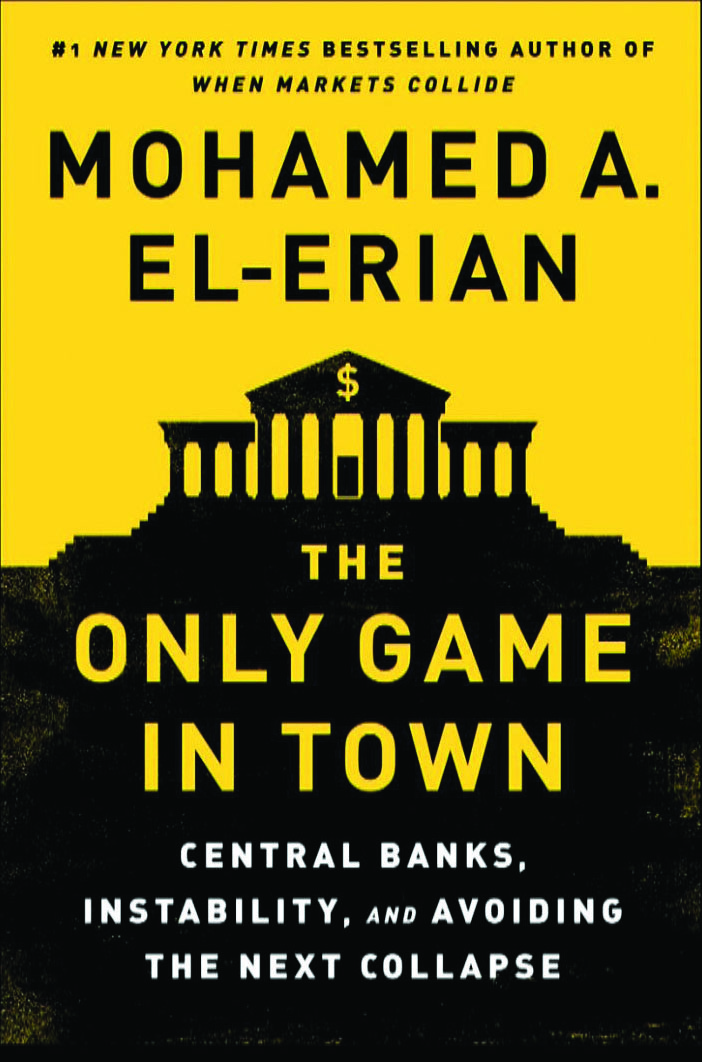Noted economist Mohamed El Erian’s The Only Game in Town: Central Banks, Instability, and Avoiding the Next Collapse looks into the key challenges facing the global economy in the ‘post new normal’ period, through the eyes of central banks. A review by Muhammed Nafie.
The way world economy has evolved during the last few years has been unprecedented. The ‘new normal’ ushered in by the global financial crisis of 2008-09 is marked by low growth, rising inequality, political dysfunction and, to a certain extent, social tensions. No technological innovation or policy intervention on the part of central banks can bring any change to this phenomenon.
But where is this ‘new normal’ headed? In his recently published book, The Only Game in Town: Central Banks, Instability, and Avoiding the Next Collapse, noted economist Mohamed El Erian predicts that the new normal is getting increasingly exhausted, with the global economy reaching a historical inflection point. Instead of having a smooth transition, the new normal will culminate in a “T junction” from where the global economy is diverged either into a road of inclusive growth and genuine financial stability or to the path of periodic recessions and the return of financial stability.
The books is an attempt to understand these disruptive forces through the eyes of central banks, by analysing the causes an implications of their historical and unexpected transformation and linking them to their much broader societal changes. He warns that the future of global economy is influenced by the choices that we make, as households, companies, and governments. Here comes the role of word’s major central banks, those ‘once-staid, unexciting institutions’ who came out of their shells and pivoted to an aggressive intervention mode during the global financial crisis to save the world from a multi-year depression.
Needless to say that when policymakers the world over bore the brunt of the crisis, it was the central banks who explored experimental ways to keep the global economy stay afloat. And now these monetary institutions are called back to wave a magic wand and make everything all right again. Apart from their legacy roles, the central banks have recently been granted greater operational autonomy which saw their power and influence grow by leaps and bounds. They were dramatically thrust into the limelight as they have become single-handedly responsible for the fate of the global economy.
The book further examines the role of central banks to pull the global system out of its doldrums, arguing that the understanding of the critical role of central banks is intertwined with the fate of the global economy. The book identifies 10 key challenges facing the global economy: inclusive growth, long-term unemployment, inequality, a lack of trust in institutions, national political dysfunction, insufficient global policy coordination, the migration and morphing of financial risks, the delusion of ample liquidity, the gap between financial markets and fundamentals, and an overall economic environment that can frustrate growth.
Limited role
But how equipped and future-ready are the banks to cut through this jumble? El Erain points out that the problem with the central banks is that their instruments are limited and there are grave uncertainties considering their ability to effect systematic and lasting change. In addition, if they remain ‘the only game in town’, we cannot rule out the possibility of them going from being part of the solution to being part of the problem. They are also incapable of improving the growth engines of their countries as they don’t have expertise or the mandate to pursue reforms in education and labour markets, nor are they in a position to lead national and regional infrastructure drives. “No matter how well they discuss and coordinate, they can offer only partial solutions to vast and deeply entrenched problems”. In addition, they are vulnerable to the winds of political backlash, should economic mediocrity continue and financial instability return.
However El Erain exudes confidence that they can continue to try to intelligently buy time for other policymaking entities, with tools better suited to implement other policy components to get their act together.
Beyond the ‘new normal’
To report this post you need to login first.






